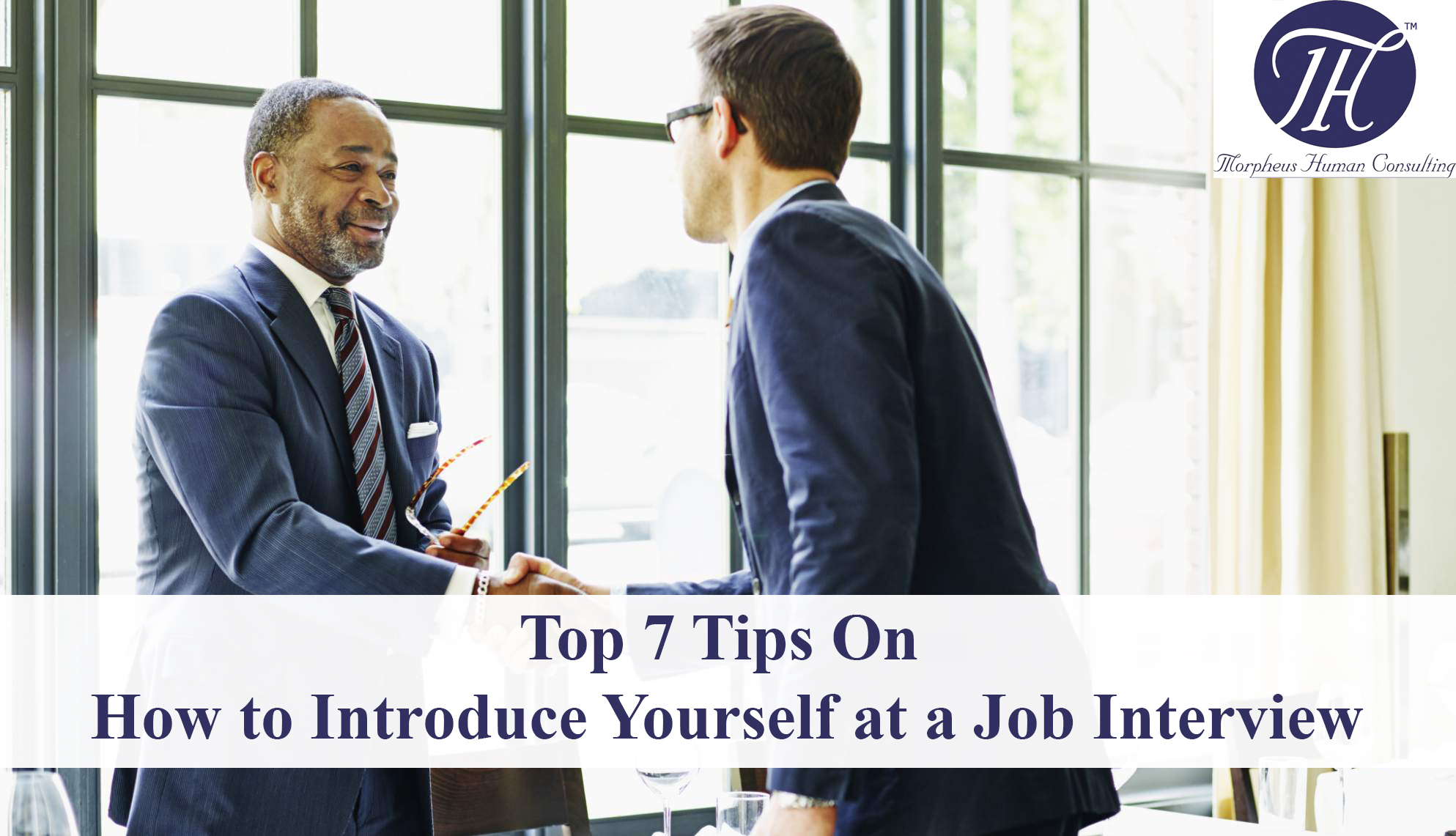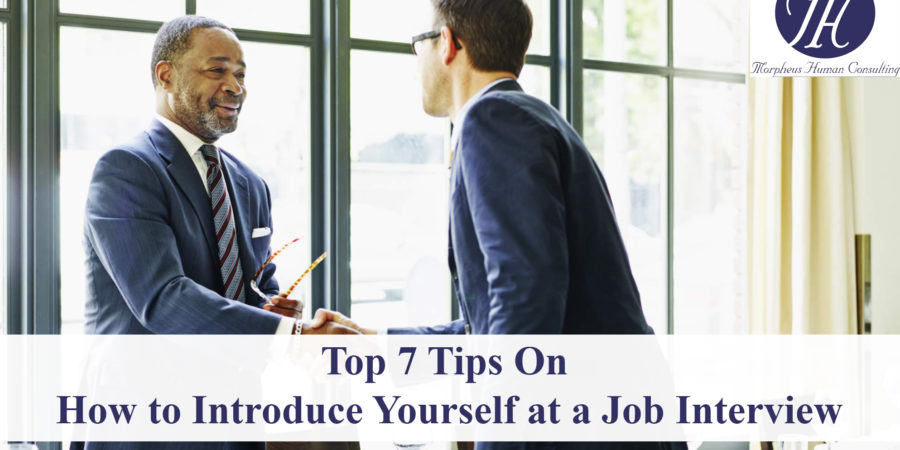Top 7 Tips On How to Introduce Yourself at a Job Interview

1. The Best Way to Introduce Yourself at a Job Interview
What’s the best way to introduce yourself at a job interview? How can you start off an interview making the best possible impression? First impressions can play a major role in how an employer perceives you as a candidate. What you say during the first phase of the interview may make a big difference in the outcome – in a good way or in a bad way.
In fact, some hiring managers may make a decision to reject a candidate based on what they didn’t do when they met them. That’s why it’s important to pay attention to interview manners and to carefully think through how you will introduce yourself during a job interview.
2. What to Say When You Arrive at the Interview
When you arrive at the interview site introduce yourself to the receptionist by stating your name and the purpose of your visit. For example: “My name is Tim Jones, and I have an interview scheduled with John Smith at 2 pm.” or “I’m Janine Bellows, and I have an appointment with Jack Clark at 10 am.”
3. What to Say When You Meet the Hiring Manager
You will either be escorted to the interview room, or the hiring manager will come out to meet you in the reception area. Again, take the time to introduce yourself so the interviewer knows who you are.
Offer to shake hands, even if the interviewer doesn’t offer their hand first. It’s good etiquette to include a handshake as part of your introduction. Tell the interviewer that it is a pleasure to meet them, smile, and be sure to make eye contact. For example: “I’m Tina Lionel, it’s a pleasure to meet you.”
Tip: To avoid sweaty palms, stop in the restroom prior to the interview and wash and dry your hands. If that’s not feasible, use a tissue to dry off your hands ahead of time.
4. Keep Your Introduction Short and Concise
You’ll have an opportunity to introduce yourself on an in-depth basis during the interview. Many hiring managers will start an interview with an open-ended question like “Tell me about yourself.” The core of your response should focus on the key elements in your background which will enable you to excel in the job for which you are interviewing.
You should carefully analyze the job before the interview so you can point out the interests, skills, experiences, and personal qualities which will enable you to meet or exceed the requirements.
5. Focus on Your Qualifications
Your introduction should be concise enough to hold the interest of the interviewer. Generally, a quick recap of your most compelling qualifications will suffice. You could also mention a couple of tidbits which are not essential to the job, but reflect your persona like the fact that you are an avid skier, have performed at comedy clubs, or collect African art.
Your goal is to connect personally with the interviewer, as well as to show that you’re qualified for the job and would make a great new hire.
Of course, your initial comments should show your enthusiasm for the job and organization. However, don’t overdo it and don’t spend too much time talking about yourself. The interviewer has an agenda and time is limited, so keep your introduction brief so you can move on to the next question.
6. Be Prepared for Follow Up Questions
The interviewer may follow up your introduction with more questions, so it’s important to remember that you will need to support whatever assertions you make during your introduction.
Be prepared to provide specific examples of how and where you have utilized your assets to successfully carry out work or volunteer roles, academic projects, or other productive endeavors. One way to provide detailed responses is to use the STAR interview technique to describe your accomplishments and achievements.
Also be prepared to ask questions during the interview. Have a short list of questions of what you’d like to know about the job and the company ready to ask the interviewer.
7. Manners Matter at Job Interviews
Manners matter during a job interview. Regardless of the job you are applying for, you will be expected to act professionally throughout every phase of the interview process from greeting the interviewer to saying thank you after your interview.
Review these job interview etiquette tips for before, during, and after a job interview to ensure that you’re minding your manners and making the best impression you can on the interviewer.
For more such useful blogs visit us on blog.mhc.co.in
